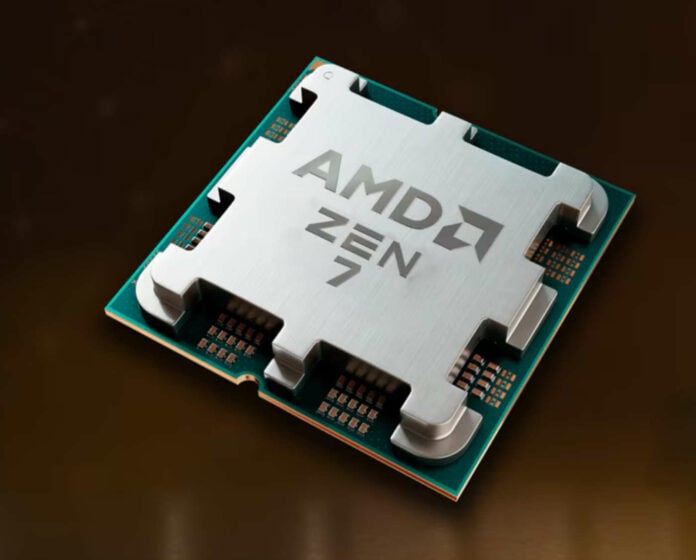AMD and Intel are seemingly fighting to see who can maintain platform support the longest, as rumours claim each are targeting four CPU generations. According to leaker Moore’s Law Is Dead (MLID) on YouTube, AMD plans to support its future Zen 7 processors on current AM5 motherboards, bringing it to parity with the long-lived AM4.
While the leaker indicates that this decision is fairly recent, as AMD was still between directions until a month or so ago, the documents mentioning it clearly state that AMD will support Zen 7 on AM5. So, assuming previous Zen 7 spec rumours are correct, this would mean that AM5 will be getting 32-core CPUs, pushing consumer desktop performance to new heights. As a reminder, AMD’s desktop processors plateaued at 16 cores since the launch of the Ryzen 9 3950X back in November 2019.
But that’s not all, Zen 7 should also use Zen 6’s IO die, which is leaks say shall improve latency and RAM support. Furthermore, assuming Zen 6 lives up to its expectation of 7GHz frequency, Zen 7 should at least match it. Now sprinkle some 3D V-Cache on top of that, and you’ve got a beast that should last for years to come.
Interestingly, this rumour came shortly after the one claiming that Intel is planning to support its upcoming LGA1954 platform for four CPU generations. Those who may have leaned towards switching to Intel will now have to think twice before. It seems that competition is starting to heat up in the consumer segment, as Intel tries to reclaim its former glory while AMD tries to hold onto its hard-earned market share. We surely don’t mind seeing new CPU releases on existing platforms as long as they improve performance or price.
Zen 7 aside, MLID has also indicated that AMD may be planning a Zen 5 refresh to counter Intel’s Arrow Lake Refresh. The YouTuber says these chips feature a binned memory controller, which would allow them to handle faster RAM, closing the gap with Intel’s processors. This is also where AMD could launch previously rumoured dual-X3D CPUs.
AMD’s Zen 7 processors aren’t likely to be with us until 2028 at the earliest, born out of the A14 manufacturing node, so don’t be surprised if these claims change over time. For the time being, take this delightful leak with a grain of salt.

